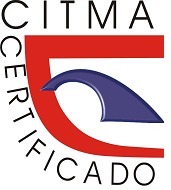Digital transformation is analogue because it is driven by people
Keywords:
Transformación digital, Gobierno de la información, Derecho, Juristas digitales, Enseñanza del DerechoAbstract
The Society´s Digital Transformation opens a new window into the relations between the Right and IT, and between emerging and disruptive technologies; as a consequence of their broader impact due to digital convergence in all specialization areas of the Law administration profession; while consisting of a path toward Information Governance. The aim of this study is to provide an inclusive insight upon some of the hermeneutic keys to understand and advance through the path of Digital Transformation, which is a process with ethical, social, economical, and political implications; therefore, it also pursue to reflect upon the Right demanded by the running times. Given the Digital Transformation´s character is recognized to be analogue for being conducted by people, from different professions with equally dissimilar set of skills; it is important to articulate them in safeguarding the human dignity. Additionally, the study argues whereas it is rationale to address the matter of Digital Jurists. The reflections shared hereafter are the result of the authors’ research in the context of: CIUDADANAS 2020 Project coordinated from Chile in collaboration with the University of Uppsala, Finland; and Project 1514 System for obtaining digital objects with legal value, of the Group of Investigations of Law Computer science of the CEGEL_UCI registered in the national Automation program led by ICIMAF, Cuba.
References
Añón L. (2010) El impacto de la IA en los servicios de sanidad.
Recuperado de https://books.google.com.cu (27 de marzo del 2020).
Amoroso, Y. Reyes, P, Saarenpää, A. y otros (2019). El Derecho de las TIC en Iberoamérica. Obra colectiva de la Federación Iberoamericana de Derecho e Informática FIADI. Editorial La Ley, Thomson_Reuters, Montevideo, Uruguay.
Amoroso, Y., Chacón, N., García,M., Guerrero, J., Reyes, P. (2019) Gobierno de la información. Realidades contemporáneas. Editorial Universidad de las Américas, Quito, Ecuador.
Amoroso, Y. (2020) Gobierno Electrónico: conceptos… (I) (II) publicado en el entorno de redes sociales y blog jurídico del Centro de Capacitación Jurídica, Perú:
(I) https://icj.pe/2020/05/27/gobierno-electronico-concepto-y- reflexiones/?fbclid=IwAR1XpSPEKVmoE01swDyrYzRhJ0xF0XytoCRIL_8OvzUn7MPD81U06CJCF7k
Amoroso, Y. (2020). Contribución para el estudio de un escenario comunicacional para Cuba en época de Transformación digital. CIPI_ISRI.
Anderson, K y Waxman, M. (2013). Law and Ethics for Autonomous Weapon Systems – Why a Ban Won’t Work and How the Laws of War Can.
Staffingamericalatina, (2019) ¿Qué es la Economía GIG? Boletín No.17 Disponible en https://staffingamericalatina.com/ (revisitado 17 de Julio del 2020).
Bhuta, N., Beck, S., y Geiss, R. (2016). Present Futures: Concluding Reflections and Open Questions on Autonomous Weapons Systems, Bhuta, N. et al. (eds.): Autonomous Weapons Systems, Cambridge University Press.
BOE (2016) Reglamento EU 2016/679, especialmente el Artículo 17 Derecho de supresión (el derecho al olvido). https://www.boe.es/doue/2016/119/L00001-00088.pdf(revisitado 17 de Julio del 2020).
Cofone (2015). Análisis de Sentencia. Boletín Estudios Colegio de Abogados. Editorial ARANZADI 2014
Consejo Europeo (2014). Directiva 2014/60/UE del 15 de mayo de 2014 relativa a la restitución de bienes culturales que hayan salido de forma ilegal del territorio de un Estado miembro, y por la que se modifica el Reglamento (UE) no 1024/2012 (refundición) (DO L 159, 28 de mayo de 2014).
Consejo Europeo (2017). Informe EUR-Lex-52013JC0001, 2017/Estrategia Común para la Ciberseguridad.
El País. (2017)La robótica también sustituye a los empleados de cuello blanco. Recuperado de https://books.google.com.cu (27 de marzo del 2020).
Ferry, L. (2017). La revolución transhumanista. Cómo la tecnomedicina y la uberización del mundo van a transformar nuestras vidas.Alianza Editorial, pp. 113 y ss. Recuperado de 27 de marzo 2020, https://www.amazon.es/revolución-transhumanista-Alianza-Ensayo-ebook.
González, A. (2013) Visualization approaches for the construction of knowledge in law: application in a digital corpus of jurisprudence. Informacao & Sociedade-estudios,23(3). http://basessibi.c3sl.ufpr.br/brapci/_repositorio/2015/12/pdf_b1c04a4a55_0000014174.pdf. (Revisitado el 17 de julio del 2020).
Goodenough, O y Lauritsen, (2012). Educating the Digital Lawyer. Harvad University.
Heyns, C. (2016). Autonomous weapons systems: living a dignified life and dying a dignified death, en Bhuta, n. et al. (eds.): Autonomous Weapons Systems, Cambridge University Press.
ICANN (2016). Meeting. Reporte Técnico. Marrakech marzo 2016.
Mattei. U, 2012 Beni comuni: Un manifesto, Editori Laterza 2012, ed. digitale 2013.
Martino, A. (1987). Manuscrito del Curso de Informática Jurídica impartido en 1897 en La Habana, Ministerio de Justicia de Cuba, IDG Florencia, Italia.
Martino, A. (2019). Conferencia Magistral inaugural del XXIII Congreso Iberoamericano de Derecho e Informática, FIADI_ Sao Paolo, Brasil.
Mena, M. y Castillo, J. (2018) Integración de los enfoques de gestión documental y gestión de riesgos para el tratamiento de la información como evidencia de actos y transacciones organizacionales. Revista Cubana de Información en Ciencias de la Salud.
Nahabetian, L. (2020). La Persona en la Era Digital. Tesis Doctoral, Universidad de Buenos Aires.
Rifkin, J, Ed. Paidós Ibérica. (2019). La sociedad de coste marginal cero: el internet de las cosas, los bienes comunes y el eclipse del capitalismo, Sociedad y Derecho. En Ed. Paidós, Ibérica.
Tribunal de Justicia de la Unión Europea, (2014). (C-131/12), Sentencia pronunciada en 2014. Derecho al olvido.
Varona, D. (2018). La responsabilidad ética del diseñador de sistemas en inteligencia artificial. Revista de occidente (446-447), 104-114.
Varona, D. (2020). AI systems are not racists just because. T-13 hours: Building Community Online in CSDH/SCHN2020. London, Ontario Canada: Canadian Society of Digital Humanities.
Varona, D., Lizama-Mue, Y., & Suarez, J. L. (2020). Machine learning’s limitations in avoiding automation of bias.AI and Society. doi:https://doi.org/10.1007/s00146-020-00996-y
Vilasau, (2014). Análisis de Sentencia. Boletín Estudios Colegio de Abogados. Editorial ARANZADI 2014.
ONU/UNESCO (2019) Consenso de Beijing sobre la inteligencia artificial y la educación. es.unesco.org › news › Recuperado 27 de marzo del 2020.
ONU (2020) https://www.un.org/disarmament/es/los-avances-en-la-informatizacion-y-las-telecomunicaciones-en-el-contexto-de-la-seguridad-internacional/. Recuperado 27 de marzo del 2020.
Downloads
Published
How to Cite
Issue
Section
License
Copyright (c) 2020 Yarina Amoroso Fernández

This work is licensed under a Creative Commons Attribution-NonCommercial 4.0 International License.













